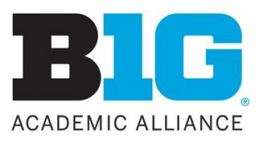 Open Access appeared in the news recently, with an endorsement by the Big Ten Academic Alliance. The Alliance includes ten research Universities, mostly located in the Midwest, as well as New Jersey and Pennsylvania.
Open Access appeared in the news recently, with an endorsement by the Big Ten Academic Alliance. The Alliance includes ten research Universities, mostly located in the Midwest, as well as New Jersey and Pennsylvania.
The statement, collectively authored by the Provosts, characterizes academic publishing as “a price-inelastic market, with little relationship between demand and price,” referencing the rapid and continued inflation in journal subscription prices. The statement affirms the importance of openly accessible research, encouraging institutions to “advance more sustainable modes of funding publishing.”
O.E.R. and LGTBQ? A recent article from New America, a “think and action tank,” speculates on the possible benefit of Open Educational Resources (O.E.R.) for LGBTQ students. Noting that LGBTQ students are notoriously under served by the educational system (“never taught material that reflects, represents, or validates their identity”), the author concludes that O.E.R. could theoretically offer solutions to that problem, by offering high-quality, “queer-inclusive” content.
Given that there is currently very little O.E.R. content specifically geared towards queer students/topics in the field, this argument is purely theoretical. Prof. Matt Brim, at the College of Staten Island, challenged his graduate students to seek out such content, with his project Free Queer CUNY. In the absence of openly-licensed Queer Studies materials, his students curated a variety of disparate readings and sources from around the web.









